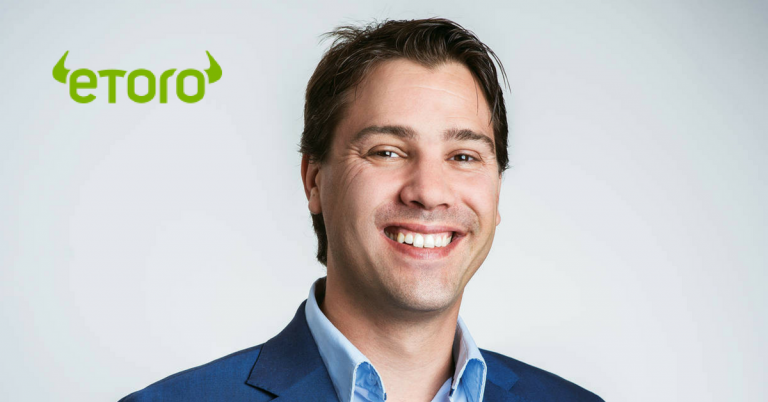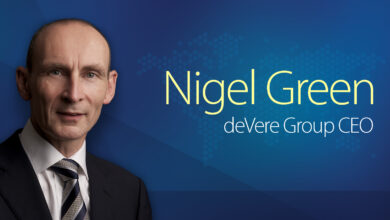
eToro is one of the largest and most popular multi-asset brokerage companies in the world. The firm focuses on social trading, free stock trading and crypto.
In an exclusive interview with LearnBonds, the CEO of eToro Yoni Assia talked about the future of cryptocurrencies, and how central banks could start creating Central Bank Digital Currencies (CBDCs).
1. What were the goals you had when you planned the eToro social trading platform?
“I founded eToro in 2007 with my brother Ronen. We wanted to disrupt the world of trading. We wanted to change the way people think about trading and investing, ultimately reducing dependency on traditional financial institutions and make trading and investing more transparent and fun.
We wanted eToro to become a community where people could share ideas. We built the platform as a social network for traders and investors, where they can execute trades, but also see what others are doing and talk to each other. We brought copy trading to the masses, and ‘copy’ remains a key feature of our multi-asset platform today. It allows you to copy trades of traders you pick in proportion to the amount you choose to invest and you can stop at any time. Around half of our clients use it, both in terms of following others or investing in our growing range of CopyPortfolios.”
2. Have these changed at all since the launch of eToroX and Lira?
“As technology has evolved, so has our business. In 2018, we created eToroX, our blockchain subsidiary. eToroX provides the infrastructure, in the form of a crypto wallet and exchange, that supports our commitment to facilitating the evolution of tokenized assets. We believe that leveraging blockchain technology will enable us to become the first truly global service provider allowing everyone to trade, invest and save.
In March 2019, eToro acquired smart contracts experts Firmo and the team now acts as an internal innovation unit tasked with bringing to life the goal of tokenizing all assets on eToro. This involves research and development of infrastructure for the representation of assets and the execution of trade processes on blockchain infrastructure. This team was behind the creation of Lira a domain-specific language that can be used to write OTC financial contracts for assets currently on the Ethereum blockchain.”
3. How many and what percentage of eToro users are currently trading crypto-assets?
“Around two-thirds of our users currently, hold or trade crypto.”
4. What are eToro’s main goals for the next two years?
“After 12 years our vision remains unchanged. We want to open up the global markets for everyone to trade and invest in a simple and transparent way.
As the world of investing changes, this means eToro evolving too so that we can continue to support our clients and help them meet their investment goals. eToro is a community and as such we are always listening to our users. This has been key for our success to date and will, we hope, help us to continue to grow and continue to meet the evolving needs of our users. So, constant innovation is a key goal for us.
We also want to continue to grow. Today we have over 11 million registered users from over 140 countries. Our website is in 21 languages and we provide customer support in 8 languages. We want to continue our global expansion. We launched a crypto offering in the US this year and we see this as an exciting opportunity for eToro.”
5. Do you consider CBDCs are an answer to virtual currencies or a sign of desperation among traditional financial institutions?
“For me, the question is when and how, not if central banks will launch digital currencies – it is inevitable. Whether they will call it crypto is the big question as it is likely to involve permission and government control whereas crypto is permission-less and decentralized. However, the creation of digital currencies by central banks will help legitimize crypto as it will enable the conversion between them.”
6. Should traditional banks consider offering crypto-related services to users?
“If they want to future-proof their business then traditional financial service providers should be preparing for the impact that blockchain will have on global finance. I believe that blockchain technology will facilitate the greatest transfer of wealth ever seen, not from one group of people to another, but from privately held databases to publicly available distributed ledgers.
This process is called tokenization. Tokenization will convert the rights of ownership of any asset into a digital token which is then available on the blockchain. It will mean ownership of traditional asset classes will be more easily transferred and more securely stored. Perhaps most importantly, markets for more niche asset classes, previously the reserve of the wealthiest, will be made far more accessible.
Traditional financial services providers, including banks, are already exploring the opportunities presented by blockchain and I believe that in time they will also offer crypto-related services.”
7. What is your opinion on Facebook Libra? Do you see it as a net benefit for users? Do you think it will change the global banking and money transfers landscape?
“Libra is a revolutionary project with a groundbreaking mission. In my view, Libra has already had a positive impact. It has brought to the fore some big issues and accelerated conversations with regulators, governments and the world of traditional finance. We believe that in the long term Libra will help support mainstream adoption and increase global awareness of the potential (and challenges) presented by crypto assets.
Libra offers the potential for Facebook to create one of the largest financial platforms in the world. It could mean greater financial inclusion and access to the digital economy.”
8. Considering eToro’s Lira will be used by financial companies, what are your expectations about this implementation? How do you feel it will benefit the finance industry?
“Lira is the first step in bringing the $500 trillion OTC derivatives market onto the Blockchain by introducing a new formal contract language. Bringing the OTC derivatives market onto the blockchain will bring more transparency and capital efficiencies to the industry.
Activities in the post-trade cycle, such as settlement and the clearing of derivatives, are both expensive and a source of systemic risk. We believe that blockchain technology can provide a secure execution environment in which settlement is guaranteed by design. Lira has the potential to open up and transform the derivatives market.”
9. Finally, there appears to be a race to offer free-stock trading between challenger banks, CFD and traditional US stock brokers. Who do you see being victorious and why?
“For eToro, this is not about following other ‘free’ trading apps. eToro has been in business since 2007 and has achieved a global scale in terms of its operations. This means that it is easy for us to add a new product to our range – it’s a small incremental cost for us as a global multi-asset platform. We can bear this cost as a way of encouraging more people to get investing. While other ‘commission-free’ providers offer a freemium and premium model, eToro is able to offer commission-free stock and ETF trading to all.
We believe it is the providers that have, or can build scale, that will succeed.”
Thank you, Yoni, for the conversation!
Source: Justinas Baltrusaitis, LearnBonds.com







